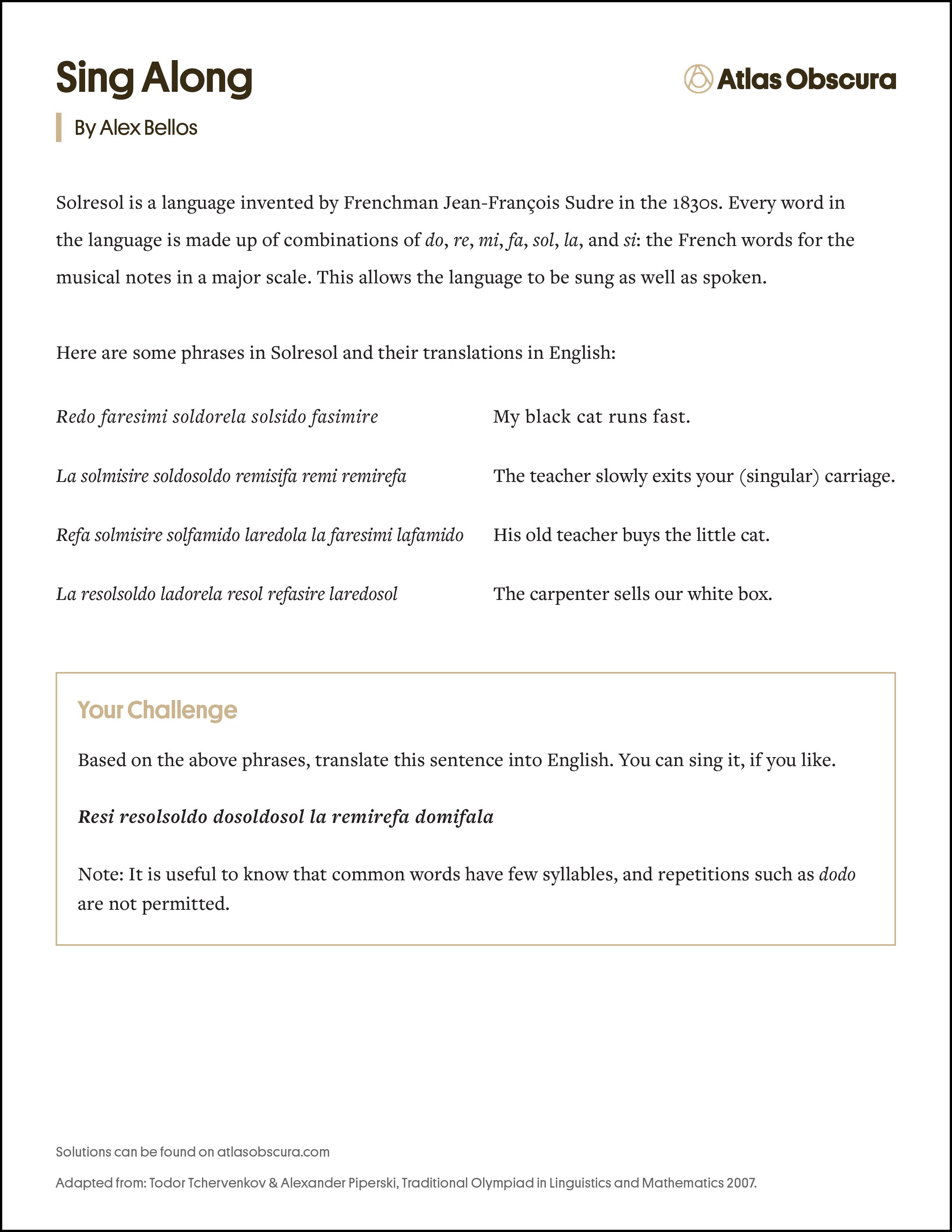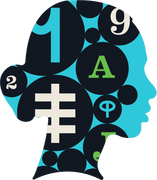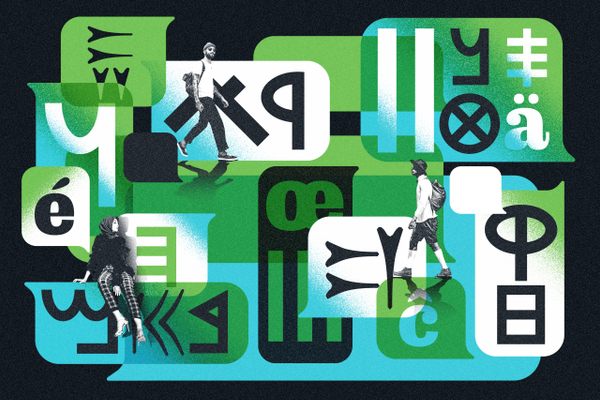
Puzzle Monday: Sing Along
Editor’s Note, November 2024: Thanks for checking out our puzzle archive! While the online version of this puzzle is no longer interactive, we suggest downloading the PDF, available below. You can find other archived puzzle PDFs available for download here.
Among our crosswords and other puzzles, we feature linguistic challenges from around the world from puzzle aficionado and writer Alex Bellos. A PDF of the puzzle, as well as the solution, can be downloaded below.
In 19th-century Europe, it was a widely held belief that a “universal language” could help achieve world peace. If the native speakers of different languages, the thinking went, were able to communicate in a common tongue, they would understand each other better and consequently there would be less ethnic conflict.
Many people invented languages with this dream in mind. Perhaps the most curious of these was Solresol, a language constructed entirely from do, re, mi, fa, sol, la, and si, the French words for the seven notes of the major musical scale.
The creator of Solresol was a French music teacher, Jean-François Sudre, who designed the language to be spoken, sung, whistled, or even played on a musical instrument. Sudre toured the concert halls of Europe to give demonstrations. His reputation as a linguistic trailblazer even earned him an audience in London with King William IV.

The most common words in Solresol are single notes. Do is ”no,” re is ”and,” and—Spanish speakers can breathe a sigh of relief—si is ”yes.” Word-length is capped at five notes, and repetitions such as dodo are not allowed, since they would be too confusing if played as music. The total vocabulary is therefore limited to just under 12,000 words, which is fine for daily use. There were other logical rules Sudre used in constructing his vocabulary, which are revealed in the puzzle below.
Of the dozens of candidates for a universal language devised in the 19th century, only one of them, Esperanto, survives as a living language: It has an estimated 100,000 active speakers, and for about 1,000 it is a mother tongue. Some of the other languages, including Solresol, have maintained some popularity among small communities of enthusiasts.
Philipp Novikov, a linguist at RUDN University in Moscow, built software to translate words into Solresol, and it has been downloaded 23,000 times. He says the appeal is the “multitude of forms that it has.” You can sing or play the language, but you can also represent it as colors, corresponding each of the seven single notes to the seven hues of the rainbow. “Many artists use it in their installations, music, video clips, films, paintings, poems, performances, and stories,” he says. “Solresol brings linguists one step closer to their discovery of the perfect language.”

The r/solresol subreddit has about 1,000 members, but the most active enthusiasts are on Discord, where a Solresol channel has 170 members. Scott Walters, an amateur linguist and COO of a charity in Melbourne, Australia, is one of them. He believes the language has a future. “If we continue to develop the way we have in the last few years, I can see Solresol becoming quite useful in the wild,” he says. “Due to its simple word structure, which is pronounceable by, or at least distinguishable by, the majority of the world’s speakers, and due to the simplicity of its grammar, it can be easily used for simple international communication—perhaps signs, shops, etc.—which also happen to be directly translatable to accessibly friendly communication.
“To me, Solresol is like a skeleton to base my creative energy off of,” he adds. “I personally enjoy the artistic aspect of the language, while not necessarily needing to memorize the entire dictionary to use it. It’s simple enough so that once you see a word and its definition, you immediately know how to use it as a verb, noun, or adjective.”
Solresol may not be a universal language—yet—but at least a few fans are dancing to its tune.

Stumped? Download the solution, with all the logical steps to get there!













Follow us on Twitter to get the latest on the world's hidden wonders.
Like us on Facebook to get the latest on the world's hidden wonders.
Follow us on Twitter Like us on Facebook